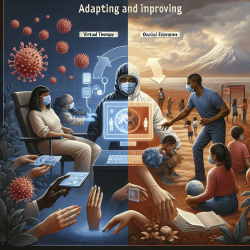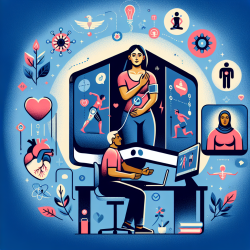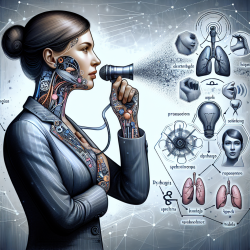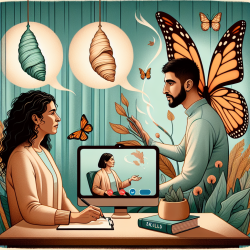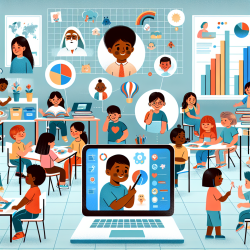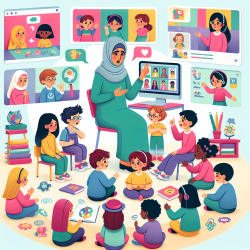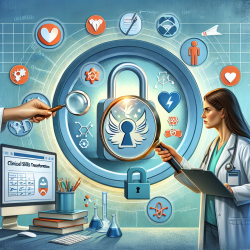The COVID-19 pandemic has been a wake-up call for educators and therapists worldwide. As we navigate the complexities of this global crisis, it's crucial to reflect on our practices and prepare for future challenges. The research article "Preparing for the Next Pandemic: Adopt, Adapt or Improve?" by Dr. Simon Priest offers valuable insights into how we can enhance our skills and methodologies in anticipation of future pandemics.
Adopt: Embrace Proven Practices
Adopting proven practices involves accepting and applying established methods to prevent disease transmission. This includes using personal protective equipment (PPE) such as masks, gloves, and face shields. However, while PPE is essential for safety, it can hinder the development of trust through physical touch—a critical component in building relationships with students and clients.
To address this challenge, practitioners must find alternative ways to build trust without physical contact. One promising method is using social dilemmas—simulations where individuals prioritize group benefits over personal interests. These activities encourage collaboration and trust-building in a safe environment.
Adapt: Modify Methods for New Conditions
The shift to online learning during the pandemic highlighted the need for adaptable teaching methods. Utilizing web conferencing tools like Zoom and Microsoft Teams allows educators to continue delivering lessons remotely. These platforms offer features such as video conferencing, screen sharing, and breakout rooms to facilitate interactive learning experiences.
While online learning provides flexibility and accessibility, it also presents challenges such as miscommunication due to the lack of body language cues. As technology advances, artificial intelligence may bridge these gaps by analyzing vocal intonations and facial expressions to enhance virtual interactions.
Improve: Innovate Beyond Current Practices
Improving our methods involves reimagining how we deliver education and therapy services. This could mean integrating simulations and augmented reality into programs to create immersive learning experiences. For example, virtual reality simulations can provide students with experiential learning opportunities that are both engaging and educational.
Additionally, collaborative crowdsourcing can drive innovation in our field. By sharing ideas and resources across organizations, we can develop new strategies that benefit everyone involved. This collaborative approach fosters creativity and ensures that we remain at the forefront of educational advancements.
Preparing for the Future
The next pandemic is not a matter of if but when. By adopting proven practices, adapting to new conditions, and improving our methodologies, we can better prepare ourselves for future challenges. It's essential to stay informed about emerging trends and technologies through conferences, publications, and webinars.
As educators and therapists, we have a responsibility to equip ourselves with the skills needed to navigate uncertain times. By embracing change and fostering collaboration within our communities, we can create a resilient educational landscape that supports all learners.
To read the original research paper, please follow this link: Preparing for the next pandemic: adopt, adapt or improve?
